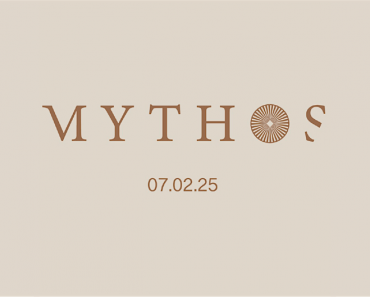The song that will represent Greece at the 69th Eurovision Song Contest in Basel, Switzerland has angered some people in neighboring Turkey because of the song’s historical references.
According to reports, the state-run broadcaster, the Turkish Radio and Television Corporation (TRT), announced that it will review the content of the song “Asteromata,” performed by Klavdia, following complaints that it alludes to the massacre of ethnic Greeks living along the Black Sea coast by the Ottoman Turks during World War I and the subsequent Greco-Turkish War.
According to the same reports, if TRT determines that Asteromata contains references to the Pontic Greek Genocide, it will file an official complaint with the European Broadcasting Union (EBU), which owns and operates the Eurovision networks.
Following her victory in Greece’s national final on January 30, Klavdia – who is of Pontian Greek descent – reiterated that “Asteromata” (which translates to “Starry-eyed” and is a word that comes from the Greek linguistic traditions of Smyrna) is not about any specific historical event but is instead inspired by all those forced to flee their homelands.
Her grandparents were refugees that fled Turkey and emigrated to the then Soviet Union, where her parents were born. She explained to Greek media in various interviews that her parents emigrated to Greece in the early 1990s and started their new life.
The controversy created by Turkey even prompted a response from the Greek government. Greek government spokesperson Pavlos Marinakis told the media that “The (song) submission process has nothing to do with political intentions—the lyrics do not contain any offensive content. In any case, history is documented and not up for debate.”
See the Greek (and English translation) lyrics below.
Watch Clavdia’s performance of the song that will represent Greece in the Eurovision Song Contest this year
Greek Lyrics
Αστερομάτα
Αστέρι μου
Αστέρι μου
Γλυκιά μου μάνα μην μου κλαις
Μαύρα και αν σου φορούνε
Το ξέθωρο το σώμα μου
Φλόγες δεν το νικούνε
Τα χελιδόνια της φωτιάς
Θάλασσες και αν περνούνε
Του ριζωμού τα χώματα
Ποτέ δεν λησμονούνε
Αστερομάτα μου μικρή
Γύρε να σε φιλήσω
Στα άγια σου τα δάκρυα
Τα χείλη μου να σβήσω
Αστερομάτα μου μικρή
Γύρε μου να σε πιάσω
Τα ξεχασμένα μου φτερά
Στερνά να ξαποστάσω
Αχ αστέρι μου, τζιβαέρι μου
Γλυκιά μου μάνα μην μου κλαις
Καράβι είναι η ζωή μου
Που ψάχνει για τον γυρισμό
Αγέρα το πανί μου
Αστερομάτα μου μικρή
Γύρε μου να σε πιάσω
Τα ξεχασμένα μου φτερά
Στερνά να ξαποστάσω
Αχ αστέρι μου, τζιβαέρι μου
Αχ αστέρι μου, τζιβαέρι μου
Αστέρι μου
English translation
My star,
My star.
My sweet mother, do not weep,
Even if they dress you in black.
My faded body,
Flames do not defeat it.
The swallows of fire,
Though they cross the seas,
The lands of their roots,
They never forget.
My little starry-eyed one,
Lean over so I may kiss you,
On your sacred tears,
Let me quench my lips.
My little starry-eyed one,
Lean over to me so that I may catch you,
My forgotten wings,
At last, to find rest.
Ah, my star, my precious one.
My sweet mother, do not weep for me,
My life is a ship,
Searching for its way back,
The wind is my sail.
My little star-eyed one,
Lean over to me so that I may catch you,
My forgotten wings,
in these last moments to find rest.
Ah, my star, my precious one,
Ah, my star, my precious one.
My Star.
Στερνά is basically the last moments, or towards the end of one’s life. Ξαποστάσω = to find rest.






